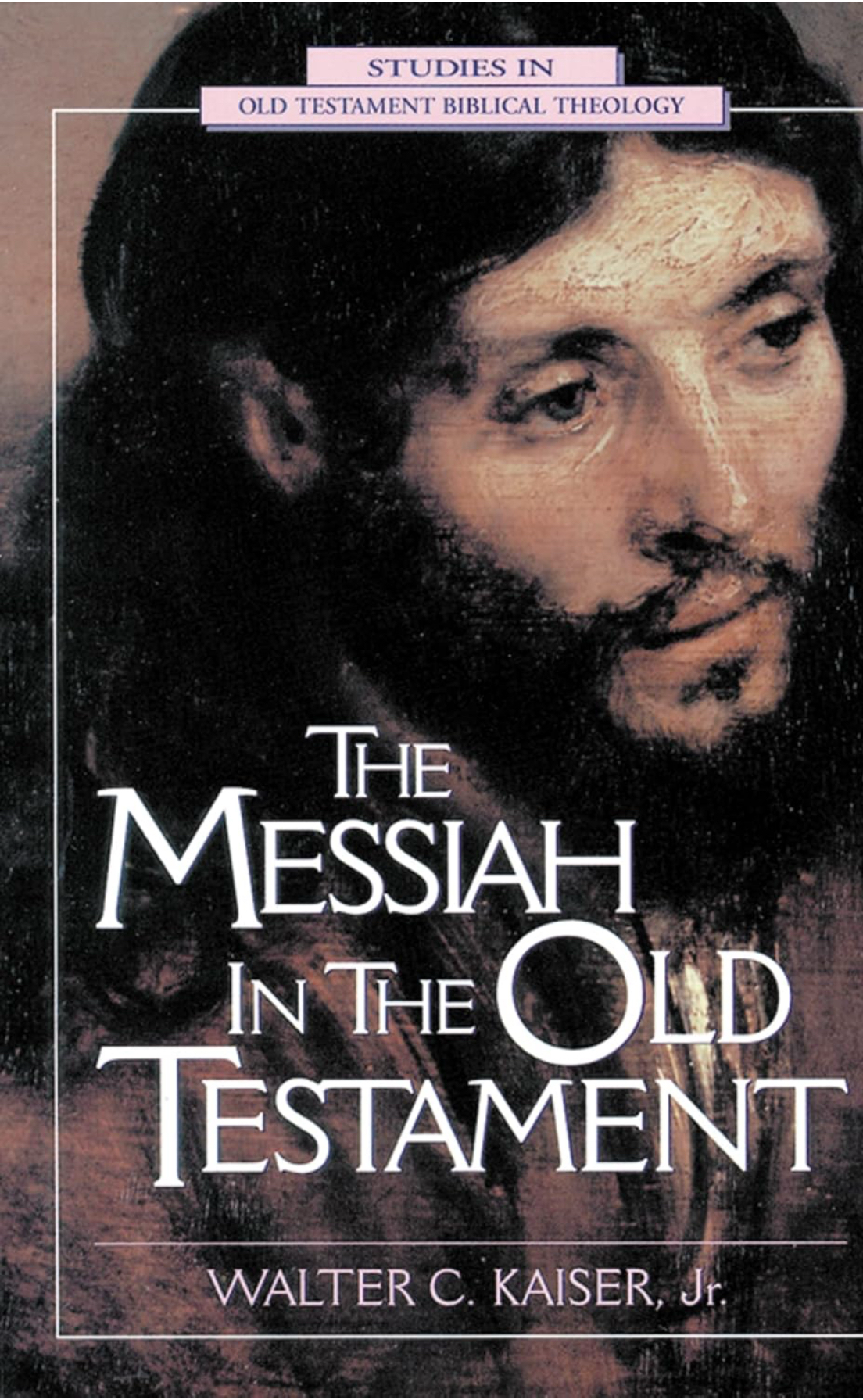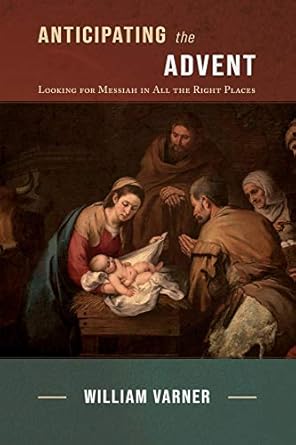A Brief Book Notice from Books At a Glance
by Fred G. Zaspel
Over the last many months in the evening services at our church, I have been surveying messianic prophecy in the Old Testament. The studies have not been greatly in depth, and certainly not technical, but they have been rather extensive – the study grew after I began, more than originally planned. I’m approaching the end of the Old Testament now, and then I plan to highlight the New Testament presentation of Jesus as Messiah.
If you’re like me, when pursuing a study like this, you want to read all you can, particularly with an eye to finding the best, most fruitful help. I’ve tried to read widely, at least sampling as much as possible. This post is to provide a list of books I found useful. I won’t bother commenting on each title, and I will not always mention titles in order of preference. Doubtless, I have missed some, but here are the recommendations I have.
For an introductory survey, you can’t do better than Walter Kaiser’s The Messiah in the Old Testament. It’s definitely the place to begin. Kaiser provides a brief, crisp exposition of each of the major prophecies, always with a close eye to the text. T.D. Alexander’s, The Servant King: The Bible’s Portrait of the Messiah is briefly excellent also although different in approach, following the Bible’s developing story. Though older, Aaron Kligerman’s Messianic Prophecy provides a helpful survey of the leading prophecies also.
Of the most comprehensive and detailed studies, Michael Rydelnik’s The Moody Handbook of Messianic Prophecy may be my first choice. Jesus the Messiah: Tracing the Promises, Expectations, and Coming of Israel’s King, by Bateman, Bock, and Johston, is a masterpiece also. Van Groningen’s, Messianic Revelation in the Old Testament, James Smith’s, What the Bible Teaches about the Promised Messiah are important also, Van Groningen especially for thoroughness. And Charles Briggs’ Messianic Prophecy is still remarkably useful. Other titles in this vein that I found useful include Richard Hess, Israel’s Messiah in the Bible and the Dead Sea Scrolls; Satterthwaite, Hess, Wenham, The Lord’s Anointed: Interpretation of Old Testament Messianic Texts; William Varner, The Messiah: Revealed, Rejected, Received and his later Anticipating the Advent: Looking for Messiah in All the Right Places; Stanley Porter, The Messiah in the Old and New Testaments; and Abernathy & Goswell, God’s Messiah in the Old Testament: Expectations of a Coming King. Many of us do not follow David Baron’s dispensational understandings, but I have to say that his Rays of Messiah’s Glory and his Types, Psalms, and Prophecies are at times marvelously rewarding.
Michael Rydelnik’s The Messianic Hope: Is the Old Testament Really Messianic? is a study in the nature of messianic prophecy, adding case studies in Genesis 3:15, Isaiah 7:14, and Psalm 110. It has won praise from all sides. His chapter on Isaiah 7:14 alone is worth the price of the book. His examination of this famous but often puzzling “virgin birth” prophecy weighs carefully all the exegetical details; in my judgment it offers the most reliable interpretation available. Kligerman’s work mentioned above, by the way, argues for the same interpretation of Isaiah 7:14, although with less exegetical rigor.
As the title implies, Robert Reymond’s Jesus Divine Messiah: The New and Old Testament Witness focuses particularly on the question of the deity of Messiah as anticipated in the Old Testament. Other books frequently point out these implications, but Reymond’s focus on the point is helpful, even though his expositions of the various passages are not as thorough otherwise.
For the broader background of the prominence of the messianic hope as a shaping consideration in the Old Testament canon, Stephen Dempster’s Dominion and Dynasty: A Theology of the Hebrew Bible is absolute must reading.
Of course throughout the study you will want to consult the best commentaries on the individual Old Testament books. I’ll just mention two categories: Isaiah and the minor prophets. For the study of the many messianic prophecies in Isaiah, Alec Motyer’s The Prophecy of Isaiah is the contemporary standard, and I found his briefer Isaiah (TOTC) is helpful to read, even having his larger work. And E.J. Young’s The Book of Isaiah will of course remain an important resource for years to come. In the study of the minor prophets I developed a new appreciation for Walter Kaiser. In addition to his broader survey of messianic prophecy mentioned above, his commentaries on Micah to Malachi are marvelously helpful – concise yet lucid and wonderfully enlightening. (See also his Commentary on Jeremiah and his commentary on Malachi.) His related work, The Promise-Plan of God, provides a helpful broader background to the study.
When it comes to studies of Isaiah’s “Servant of the Lord,” we have additional resources beyond the commentaries. In addition to the countless selected chapters, journal and encyclopedia articles, and the seemingly countless items filed away in my computer, we have many useful monographs devoted to the study. There is room for comprehensive surveys of Isaiah’s “servant songs,” but Henri Blocher, Songs of the Servant: Isaiah’s Good News, and Brian Russell, Behold My Servant are helpful. Gordon McConville’s The Suffering Servant: Isaiah 53 for the Life of the Church has some helpful observations, but honestly, I did not find this work as rewarding as I had hoped. For the most famous of these servant songs (Isaiah 52:13 to 53:12) Bock and Glaser’s The Gospel According to Isaiah 53: Encountering the Suffering Servant in Jewish and Christian Theology is the most profitable. See also Mitch Glaser’s Isaiah 53 Explained and David Baron’s The Servant of Jehovah: The Sufferings of the Messiah and the Glory that Should Follow. And just recently, Banner of Truth released John Calvin’s expositions of Isaiah 53, Behold My Servant.
Several of the titles mentioned above follow the study into the New Testament presentation of Jesus as Messiah. Here you will want to see such works as Geerhardus Vos’s famous work, The Self-Disclosure of Jesus, and more recently, Michael Bird’s Jesus is the Christ: The Messianic Testimony of the Gospels. I’ll have more here in a few months!
It’s a rich, profitable study, confirming faith, inciting hope, and shaping our understanding of the Old Testament as a whole. I can’t say that everyone must give the prolonged attention to it in preaching / teaching that I have. I feel a bit conflicted on this point. On the one hand I feel that I have overlooked too much. But on the other hand, I sometimes wonder if I have presumed on the congregation going as long as I did in this series. So far, at least, the input from the congregation has been encouraging. But I can at least say that this is “must do” territory for every pastor to show that the entire Bible, not just the New Testament, is indeed a book about Jesus. If you’re planning to preach / teach on this wonderful topic, I hope you will find this brief bibliography helpful.

